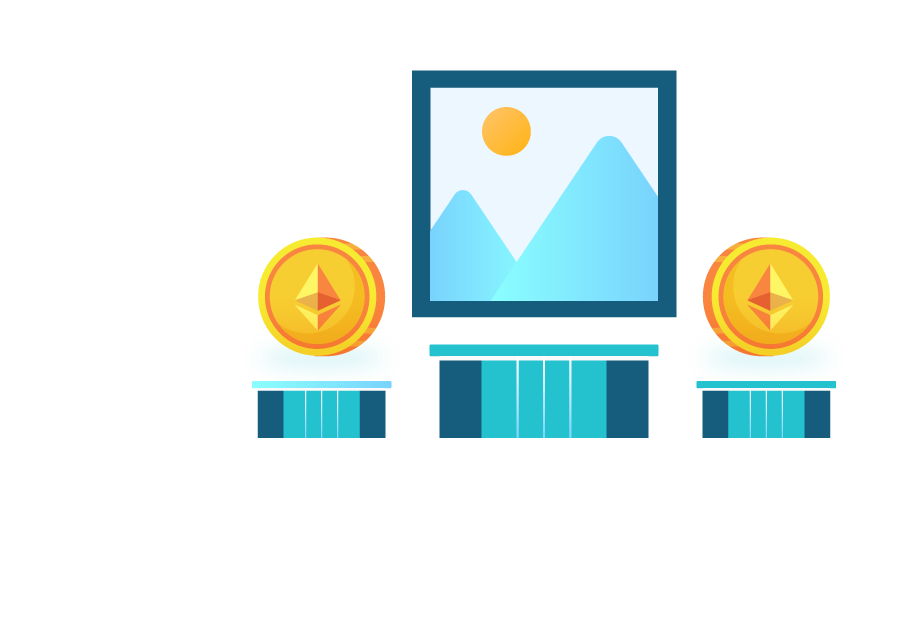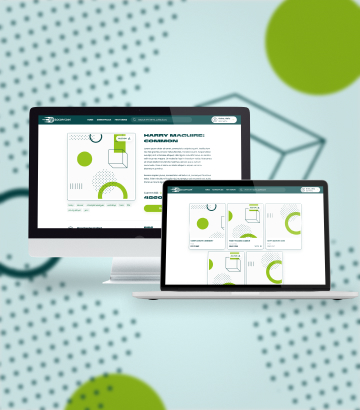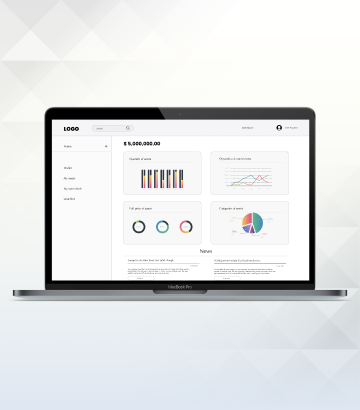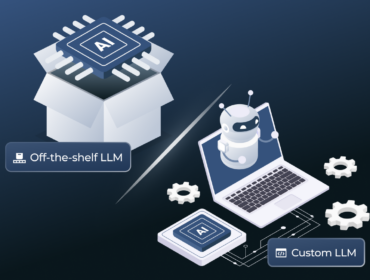As the popularity of non-fungible tokens (NFTs) continues to grow, new opportunities for artists are popping up all over the world. Thanks to the emergence of new NFT markets where users can buy and sell their NFTs, artists have an entirely new platform to make a name for themselves.
But with new markets comes new platforms and it’s not always obvious which one is best for a certain business. Some vendors want to create their own NFT marketplaces while others prefer to partner with a third-party platform to cut costs upfront.
This article will analyze the NFT art marketplace, how to create one, what features are essential, and what risks to avoid.
What is the NFT Marketplace?
The NFT marketplace is a platform based on Blockchain technology that stores, displays, trades, and mints NFT digital assets. Using this format, you can sell literally anything: music, images, videos, texts, 3D models, and so on.
The thing is that each NFT is unique. Thus, all information regarding the author and the buyer is securely protected by the blockchain. In simpler terms, an NFT is a digital certificate that has a unique object associated with it.
Most of the attention paid to NFT products is from collectors (they are willing to spend a lot of time to acquire new unique items), gamers (as a rule, they are interested in in-game items: skins, weapons, trading cards, etc.) and, of course, activists and fans of art. In this case, absolutely all manifestations of art are taken into account.
Pros and Cons of the NFT Art Marketplace
Besides the fact that NFT helps protect the ownership of art, this is not the only benefit NFT brings to the table.
The NFT art marketplace allows an artist to act independently. Artists who couldn’t hire an art dealer can now receive royalties from the sale of each of their works and always remain the sole owners of the originals.
In an art market, an artists’ success is often determined not just by their skill but also by their background, gender, or race. NFT this type of hierarchy by providing equal conditions for every artist.
However, there remain several issues facing the NFT art marketplace. For example, the decentralization of NFTs is often questioned, since this niche is not completely independent of traditional art market leaders. The NFT marketplace still requires institutional intervention. NFT marketplaces that can be accessed only through pre-selection remain bound to the same politics of art galleries.
The second most common issue is the availability of NFT platform availability, which has caused such a large influx of people solely interested in potential profit. With the growing popularity of such platforms, many artists began to follow digital art trends and imitate successful authors just to fit in with popular NFT art styles to earn more money. This leads to a large amount of low-quality work and people with a tendency to say that NFT art is not art at all.
How to Create an NFT Art Marketplace
Consider the following aspects when building an NFT Art Marketplace Platform:
If you want to benefit from the fast-growing and promising NFT market, you must consider the following NFT marketplace development technological aspects in order to be successful:
- Choosing a blockchain for your project. This can be either new blockchains with low on-chain transaction costs but small audiences (like Solana) or high-audience blockchains with expensive transactions (like Ethereum).
- A Storefront with flawless UX/UI for a seamless selling process, including search, filters, bidding functionality, listings management, etc.
- Bullet-proof smart contracts for proper NFT minting and IP tokenization.
- 99.9% storefront availability and reliability. State-of-the-art infrastructure that handles numerous users, operators, and transactions is a must.
- Cybersecurity. Maintaining stringent cybersecurity is a must for protecting against all internal and external threats.
- Intuitive crypto-native payment options. A flawless way for users to buy and sell NFTs using cryptocurrencies, including the use of traditional credit and debit cards.
- Convenient B2B portal. For managing relationships with asset-owners, all from a single platform.
- AML/KYC compliance. To prevent money laundering, enable customer transaction monitoring, and generate reports on suspicious financial activity.
- Efficient back-office. Impeccable integration with CRM, ERP, and other third-party services to automate internal operations.
Remember that the design of your interface should not only be adapted for the needs of a user but also enjoyable for digital content creators. Artists should be able to upload their art, create a token, name their art, set a price, and more.
Search filters should allow a consumer to easily search and filter the items. Make it possible to search for a piece of art by author, title, style, year of creation, etc.
The purchasing process should be easy and convenient for both the creator and consumer. Payments should quickly circulate from your wallet to a marketplace. The artist should be able to profit from the sale on the platform after it the commission is subtracted.

Risks and prospects of the NFT Art Marketplace
The world of NFT has two sides. For instance, simple NFT minting does not provide a 100% guarantee of legal control. And some platforms don’t do much to eliminate vulnerabilities. There have been situations when artists found their works on NFT platforms without their knowledge and consent.
Moreover, the most common Ethereum smart contract contains both significant advantages and considerable disadvantages. Today, it does not provide a resale component. This means that if an artist wants to take advantage of resale, they will have to first get a contract drawn up by a technical lawyer. In addition, it is not known whether a smart contract will be considered valid if a lawsuit is brought against someone – there simply have not been any cases to set a precedent yet.
Still, the NFT art marketplace can be a convenient and essential platform for artists. If you want to create your own NFT marketplace that will make a difference and attract more creators, you should consider all the benefits and risks and ensure that what you build is iron-tight with regards to security. Unicsoft is always here to provide you with the best Non-Fungible Token creation services with built-in security and consistent support over the lifetime of a project.








![NFT Art Marketplaces: How to Create One and What Risks to Avoid What’s the EU Artificial Intelligence Act and How to Comply? [Webinar]](https://unicsoft.com/wp-content/uploads/2024/03/Cover_1140_v1.1-370x280.png)

